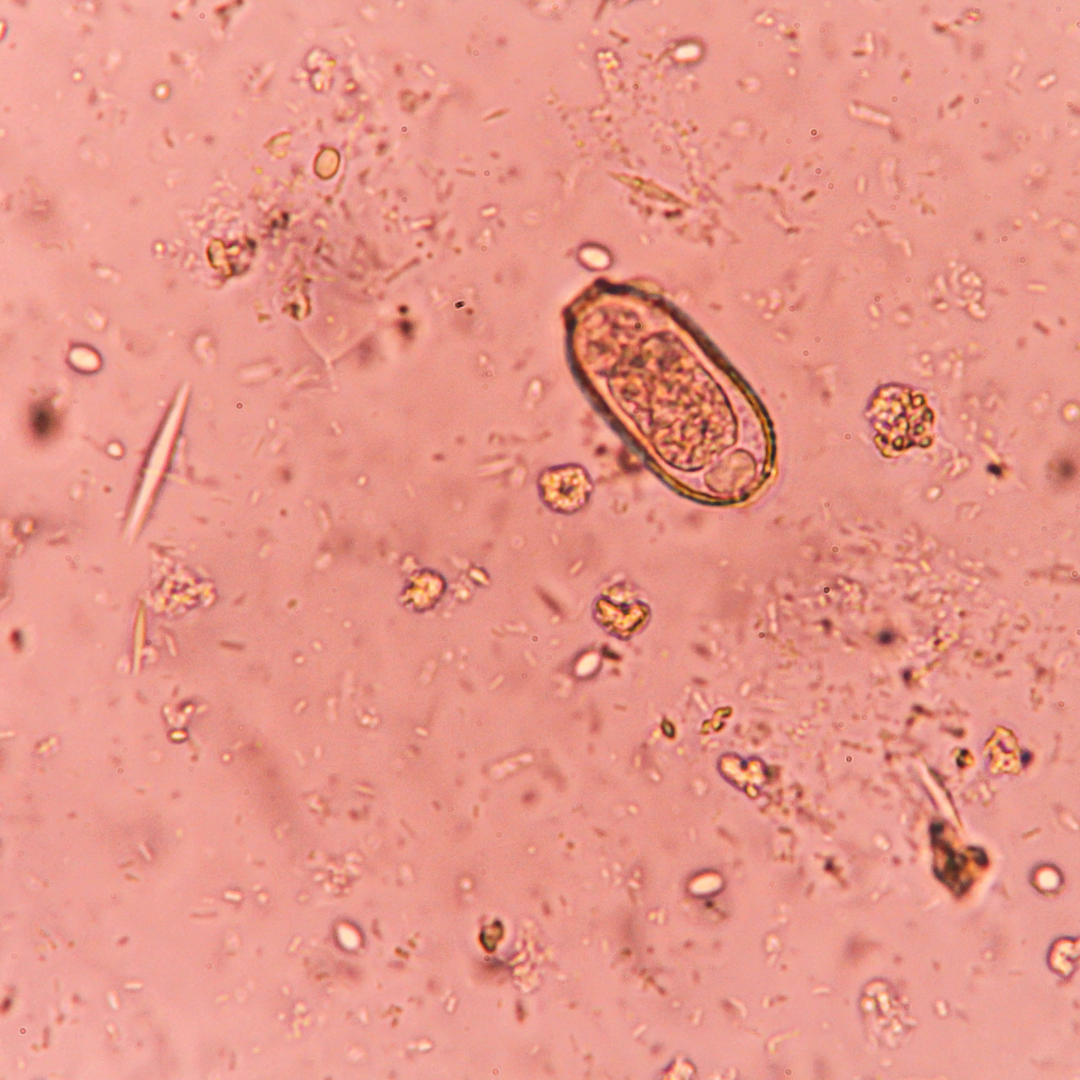Article: Understanding Dientamoeba Fragilis: What You Need to Know

Understanding Dientamoeba Fragilis: What You Need to Know
Having so many of our community eradicating Blastocystis Hominis, a protozoan parasite, it was only natural we also looked into Dientamoeba Fragilis—another very common protozoan parasite. Due to limited studies and concrete knowledge around this organism, the jury is still out on whether or not to actually treat it when it shows up on a stool test. Read on to find out why!
What is Dientamoeba Fragilis?
Dientamoeba Fragilis is a microscopic parasite that infects the human intestines. Despite its name suggesting it is an amoeba, D. Fragilis is actually classified as a flagellate, meaning it moves using whip-like structures called flagella.
It is globally distributed, found in both developed and developing countries, and can infect individuals of any age. The exact mode of transmission remains unclear, but it is often assumed to be fecal-oral, suggesting spread through contaminated food or water. However, research is lacking, leaving this as a grey area.
What Do Studies Show?
Estimates suggest Dientamoeba Fragilis infection is common worldwide:
"Dientamoeba fragilis is reported with a prevalence ranging from 0 to 62%, depending on region, population and detection methods used. D. fragilis was identified in 0.5% of all stool samples examined in a large U.S. study, and the prevalence is as high as 20% to 50% in selected populations. It is increasingly recognised as a parasite with the potential to cause illness in humans."
Despite being identified over a century ago, research remains limited. Some studies suggest it is unusual in that it:
-
Appears to only survive inside a host.
-
Does not seem to have a cyst stage (common in other protozoan parasites).
If true, this means it may not survive a faecal-oral route of transmission—leaving many puzzled about how infection actually occurs. Some studies show it may be transported via pinworm eggs, a common parasite in children.
Because of these gaps in understanding, clinicians remain divided on whether D. Fragilis should always be treated.
Mixed Opinions on Treatment
Some researchers and gut health clinicians believe D. Fragilis should always be eradicated, as it may cause long-term illness. Others argue it may be a commensal organism—a microbe wrongly blamed for poor gut health because it is easy to detect on stool tests.
Another possibility? That certain strains of D. Fragilis are pathogenic (disease-causing), while others are harmless—meaning treatment may not always be necessary.
At Zeally Herbs, we suggest ruling out other possible gut conditions first—such as SIBO, dysbiosis, or coeliac disease—before deciding how to approach this parasite.
Symptoms of Dientamoeba Fragilis
Infection may cause a variety of gastrointestinal issues, which vary in severity. Symptoms can include:
-
Diarrhoea
-
Abdominal pain
-
Bloating
-
Excessive gas
-
Nausea
-
Irritable Bowel Syndrome in adults (5)
-
General fatigue (4)
There was even a case reported in 1983 linking D. Fragilis to ulcerative colitis (6), where treatment of the parasite cleared up the illness.
Some individuals, however, remain asymptomatic carriers.
Remedies for Dientamoeba Fragilis
While many doctors prescribe antibiotics, others prefer a more holistic approach.
Antibiotics: Common options include metronidazole (7), oxytetracycline, doxycycline, tinidazole, ornidazole, and erythromycin (9). If you take this route, be sure to nurture and rebuild your gut microbiome afterwards.
Diet: Follow a parasite cleanse diet protocol, such as outlined in the Zeally Herbs e-book. This typically involves eliminating starches, sugars, processed foods, dairy, alcohol, and red meat.
Apple Cider Vinegar (ACV): Taking ACV before meals may help digestion. (See our free ACV Guide for more info.)
Gut Repair: Many clinicians suggest repairing the gut lining using L-Glutamine, bone broth, and soothing herbs like aloe vera, licorice root, marshmallow root, and slippery elm bark.
Herbal Support: Traditional anthelmintic herbs such as Artemesia annua (Sweet Annie), Black Walnut, Myrrh, and Clove are often used. These are all included in Zeally Herbs Parasite Cleanse and Colon Cleanse Capsules.
Microbiome Nurturing: After treatment, support the microbiome with prebiotics and probiotics. Zeally Herbs’ Biotic Powder is rich in prebiotics to help long-term gut health (7).
Final Thoughts
If you test positive for Dientamoeba Fragilis, work with a clinician to rule out other gut disorders such as SIBO, coeliac disease, or food allergies. If you decide to try natural alternatives, the six steps above provide a roadmap.
The Zeally Herbs Parasite Cleanse is a holistic, gentle yet potent formula that can be taken annually or bi-annually as part of your parasite prevention and management routine.
As always, reach out if we can help with anything! x
FAQs About Dientamoeba Fragilis
1. Should I always treat Dientamoeba Fragilis?
Not necessarily. Some clinicians recommend treatment in all cases, while others see it as harmless in many people. It may depend on the strain and your symptoms.
2. How do people get Dientamoeba Fragilis?
The transmission route is unclear. It may not survive the usual faecal-oral pathway, but studies suggest it can hitch a ride inside pinworm eggs.
3. Can Dientamoeba Fragilis cause symptoms?
Yes. It has been linked to diarrhoea, bloating, abdominal pain, fatigue, and even irritable bowel syndrome in adults. Some people, however, have no symptoms at all.
4. What natural remedies may help with Dientamoeba Fragilis?
Options include parasite cleanse diets, Apple Cider Vinegar, gut repair herbs, and antiparasitic botanicals like Wormwood, Clove, and Black Walnut.
5. Can I use the Zeally Herbs Parasite Cleanse for Dientamoeba Fragilis?
Yes. Our formula combines potent herbs traditionally used to help eliminate intestinal parasites and support overall gut health.

